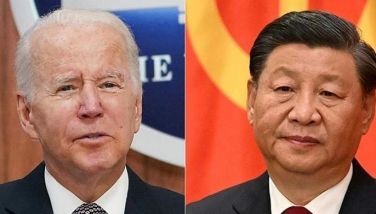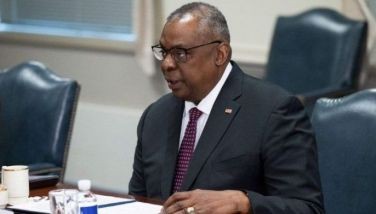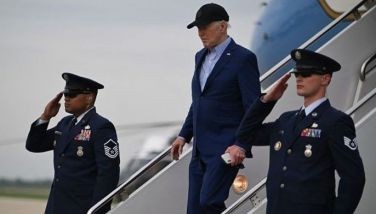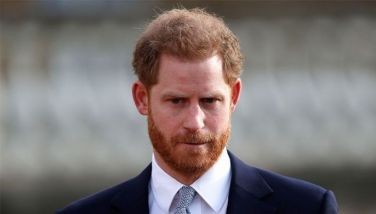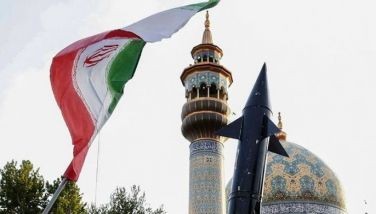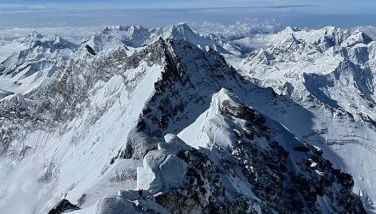Ukraine nuclear plant on fire after Russia shelling
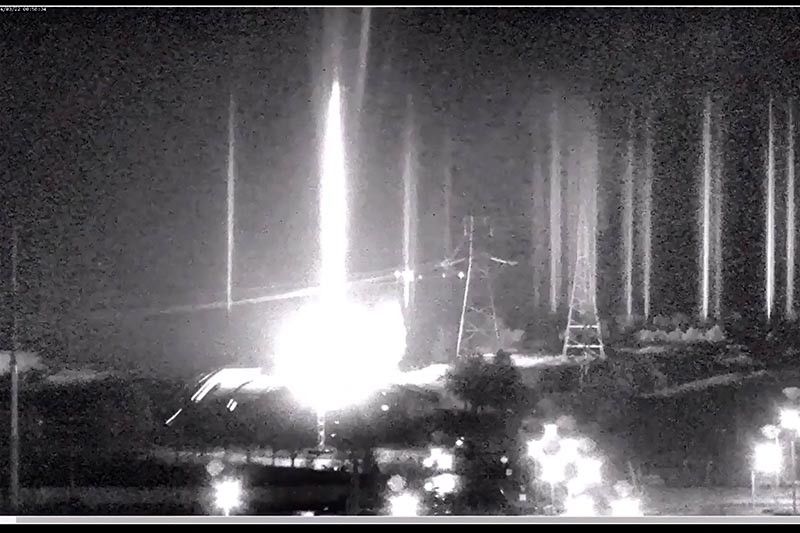
KYIV, Ukraine — Europe's largest nuclear power plant was on fire Friday after Russian strikes hit the Ukrainian facility, with the country's foreign minister demanding an immediate ceasefire at the site to avoid disaster.
Russia has intensified strikes across the country, with fresh reports of civilian casualties and devastating damage, even as Moscow agreed to a Ukrainian request for humanitarian corridors to allow terrified residents to flee.
There was no immediate clarity on how they would work, and no sign of any move towards a ceasefire, with Ukraine's President Volodymr Zelensky urging the West to step up military assistance and "give me planes."
On Friday morning, Europe's largest nuclear plant was on fire after Russian attack that hit the its power unit, the facility's spokesman said.
"As a result of shelling by Russian forces on the Zaporizhia Nuclear Power Plant, a fire broke out," spokesman Andrei Tuz said in a video posted on the plant's Telegram account.
The plant's power unit had been hit, he added, as Foreign Minister Dmytro Kuleba called for an immediate halt to fighting at the site.
"Russian army is firing from all sides upon Zaporizhzhia NPP, the largest nuclear power plant in Europe. Fire has already broke out," he tweeted, warning of potential nuclear disaster if the plant blew up.
"Russians must IMMEDIATELY cease the fire, allow firefighters, establish a security zone!"
A live feed of the site earlier appeared to show blasts at the site, with fire lighting up the night sky and plumes of rising smoke.
Earlier the International Atomic Energy Agency had raised the alarm after Russian troops entered the nearby town of Enerhodar in southern Ukraine.
IAEA director Rafael Mariano Grossi urged an "immediate halt to the use of force at Enerhodar and called on the military forces operating there to refrain from violence near the nuclear power plant", the agency said in a statement.
'Just like Leningrad'
Eight days into the conflict there has been no sign of Moscow halting its offensive, despite punishing international sanctions, and Zelensky too vowed Russia would face stiff resistance, while calling on the West for more support.
"If we are no more then, God forbid, Latvia, Lithuania, Estonia will be next," he told a news conference, adding that direct talks with Putin were "the only way to stop this war".
Much of the international community has rallied behind Ukraine since Putin invaded on February 24, making Russia a global outcast in the worlds of finance, diplomacy, sport and culture.
Western analysts say the invading forces have become bogged down -- but warn that the early failures could lead to a frustrated Moscow deciding to unleash all its power on Ukraine.
Putin's comments Thursday did nothing to dispel that fear.
He said Russia was rooting out "neo-Nazis", adding in televised comments that he "will never give up on (his) conviction that Russians and Ukrainians are one people".
French President Emmanuel Macron, who spoke to Putin Thursday, believes "the worst is to come," an aide said.
While a long military column appears stalled north of Ukraine's capital Kyiv, Russian troops have already seized Kherson, a Black Sea city of 290,000 people, after a three-day siege that left it short of food and medicine.
Russian troops are also pressuring the port city of Mariupol east of Kherson, which is without water or electricity in the depths of winter.
"They are trying to create a blockade here, just like in Leningrad," Mariupol mayor Vadym Boichenko said, referring to the brutal Nazi siege of Russia's second city, now re-named Saint Petersburg.
In the northern city of Chernihiv, 33 people died Thursday when Russian forces hit residential areas, including schools and a high-rise apartment block.
And Ukrainian authorities said residential areas in the eastern city of Kharkiv had been "pounded all night" by indiscriminate shelling, which UN prosecutors are investigating as a possible war crime.
'Maybe it's hell'
Many Ukrainians were digging in.
Volunteers in industrial hub Dnipro were making sandbags and collecting bottles for Molotov cocktails as they prepared for an onslaught.
In Lviv, volunteers organised food and supplies to send to other cities and produced home-made anti-tank obstacles after watching YouTube tutorials.
But for others, the worst has already come.
Oleg Rubak's wife Katia, 29, was crushed in their family home in Zhytomyr, west of Kyiv, by a Russian missile strike.
"One minute I saw her going into the bedroom. A minute later there was nothing," Rubak, 32, told AFP amid the ruins in the bitter winter chill.
"I hope she's in heaven and all is perfect for her," he said, in tears.
Gesturing at the pile of rubble, he said what remained was "not even a room, it's... maybe it's hell."
The conflict has already produced more than one million refugees who have streamed into neighbouring countries to be welcomed by volunteers handing them water, food and giving them medical treatment.
Both the EU and the United States said they would approve temporary protection for all refugees fleeing the war -- numbered by the United Nations at more than one million and counting.
"We left everything there as they came and ruined our lives," refugee Svitlana Mostepanenko told AFP in Prague.
The fear of igniting all-out war with nuclear-armed Russia has put some limits on Western support for Ukraine, though a steady supply of weaponry and intelligence continues.
The main lever used to pressure Russia globally has been sanctions, piled on by the West.
The ruble has gone into free-fall, while Russia's central bank — whose foreign reserves have been frozen in the West — imposed a 30-percent tax on all sales of hard currency, following a run on lenders by ordinary Russians.
And Putin's invasion has seen some eastern European countries lean even harder West, with both Georgia and Moldova applying for EU membership on Thursday.
In Russia, authorities have imposed a media blackout on the fighting and two liberal media groups — Ekho Moskvy radio and TV network Dozhd — said they were halting operations, in another death-knell for independent reporting in Putin's Russia.
On Friday, Facebook and multiple media websites were partially inaccessible in Russia, as authorities crack down voices criticising the war.
- Latest
- Trending


















